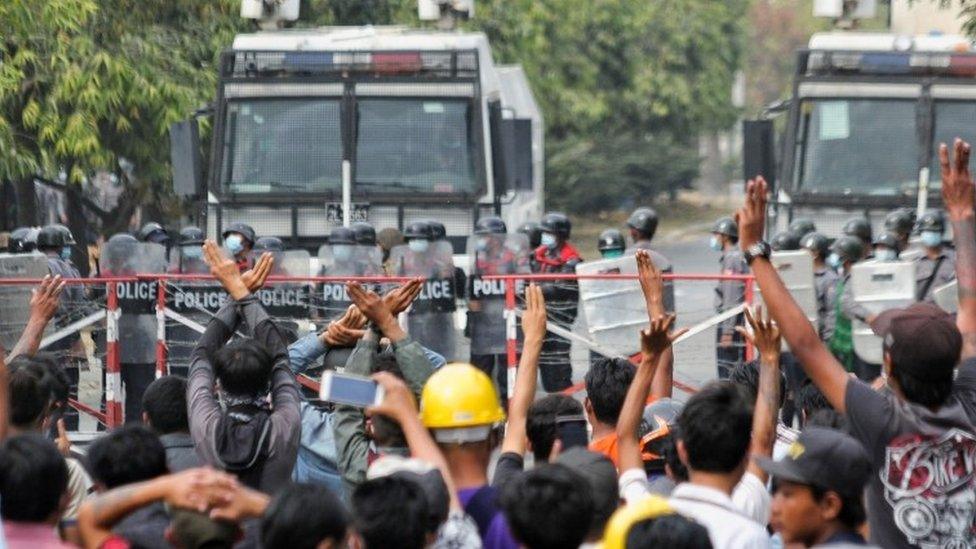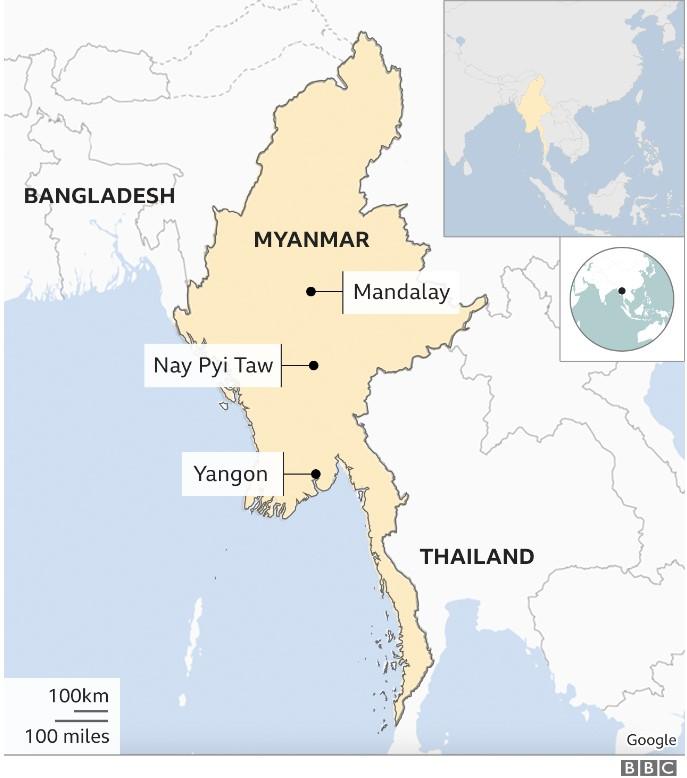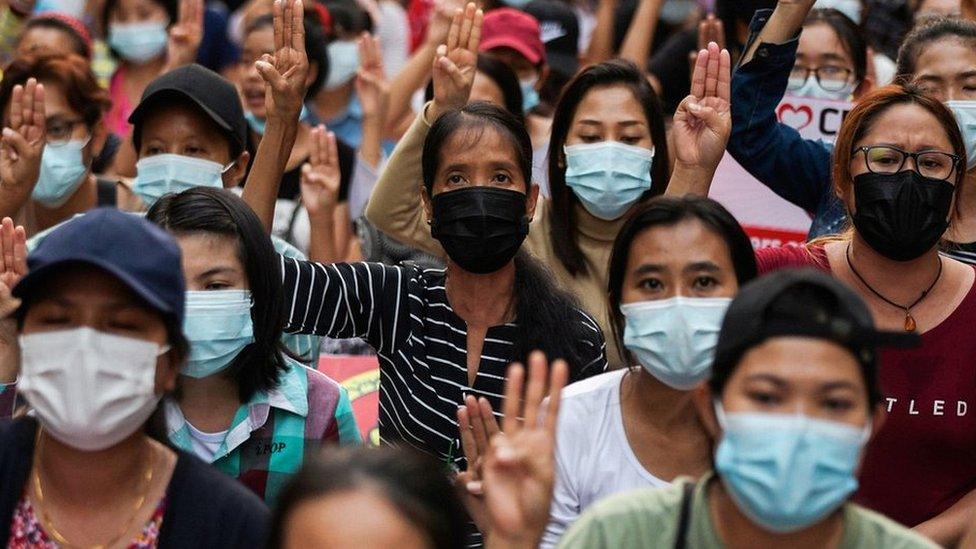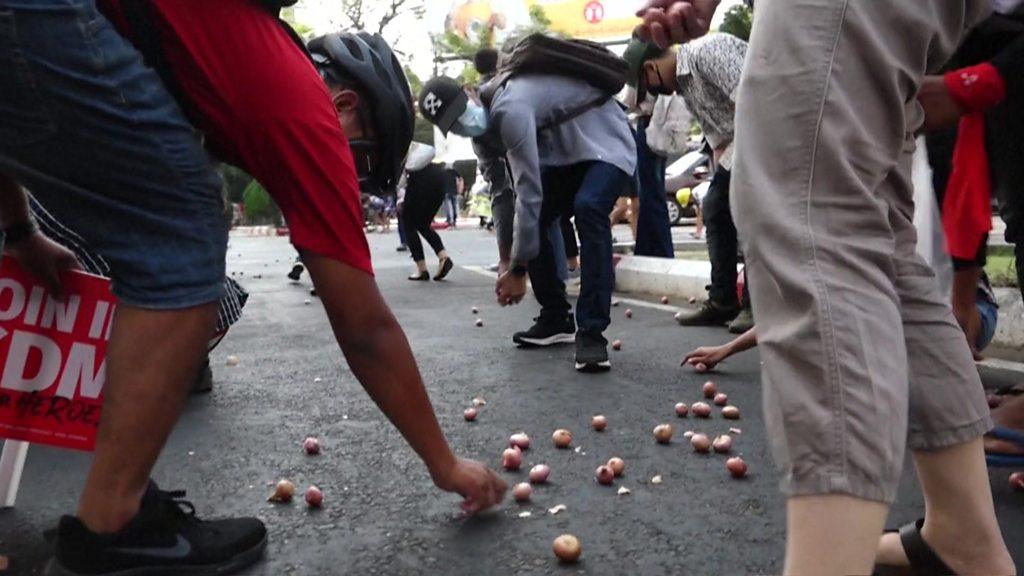Myanmar coup: At least two killed as police disperse protesters
- Published

Protesters have been taking to the streets even since the coup at the start of the month
At least two people have been killed in protests in Myanmar against a military coup, the worst violence yet in more than two weeks of demonstrations.
Police used live ammunition to disperse demonstrators in Mandalay, reports from the ground said. At least 20 people were injured.
Hundreds had gathered for the rally at a shipyard in Myanmar's second largest city.
The coup saw the overthrow of Aung San Suu Kyi's elected government.
Protesters are demanding that she be released, along with other members of her National League for Democracy (NLD) party. She is under house arrest, accused of possessing illegal walkie-talkies and violating the country's Natural Disaster Law.
The military allege the NLD's landslide election win last year was fraudulent but have not provided proof.
From blindfolded protests to dressing like Aung San Suu Kyi, why creatives are concerning Myanmar's army
Clashes broke out in Mandalay when police confronted protesters and striking shipyard workers.
Reports say some protesters flung projectiles at police, who responded with live fire and tear gas.
Images show protesters holding up what appear to be bullet cartridges.
Relatives of one of those killed told Reuters news agency he was a carpenter, aged 36, who was shot in the chest. The other fatality - reports say a boy under 18 - was shot in the head.
The EU said it strongly condemned the violence and the US embassy in Myanmar said it was "deeply troubled".
UK Foreign Secretary Dominic Raab tweeted: "The shooting of peaceful protesters in Myanmar is beyond the pale.
"We will consider further action, with our international partners, against those crushing democracy and choking dissent."
Singapore, a big investor in Myanmar, warned of "serious adverse consequences for Myanmar and the region" if the situation continued to escalate.
On Friday a young woman became the first confirmed death from the protests.
Mya Thwe Thwe Khaing was shot in the head on 9 February at a rally in the capital Nay Pyi Taw. Rights groups said her injuries were consistent with the use of live ammunition. Police denied using lethal force.
The military authorities say a policeman has been killed since the protests began after the 1 February coup.
Further demonstrations took place on Saturday in several cities, including Yangon, where residents banged pots and a candle-light vigil was held outside the US embassy. The security forces mostly left the protesters alone.

Myanmar - the basics
Myanmar, also known as Burma, was long considered a pariah state while under the rule of an oppressive military junta from 1962 to 2011
A gradual liberalisation began in 2010, leading to free elections in 2015 and the installation of a government led by veteran opposition leader Aung San Suu Kyi the following year
In 2017, Myanmar's army responded to attacks on police by Rohingya militants with a deadly crackdown, driving more than half a million Rohingya Muslims across the border into Bangladesh in what the UN later called a "textbook example of ethnic cleansing"
Aung San Suu Kyi and her government were overthrown in an army coup on 1 February


Related topics
- Published25 July 2022

- Published19 February 2021
